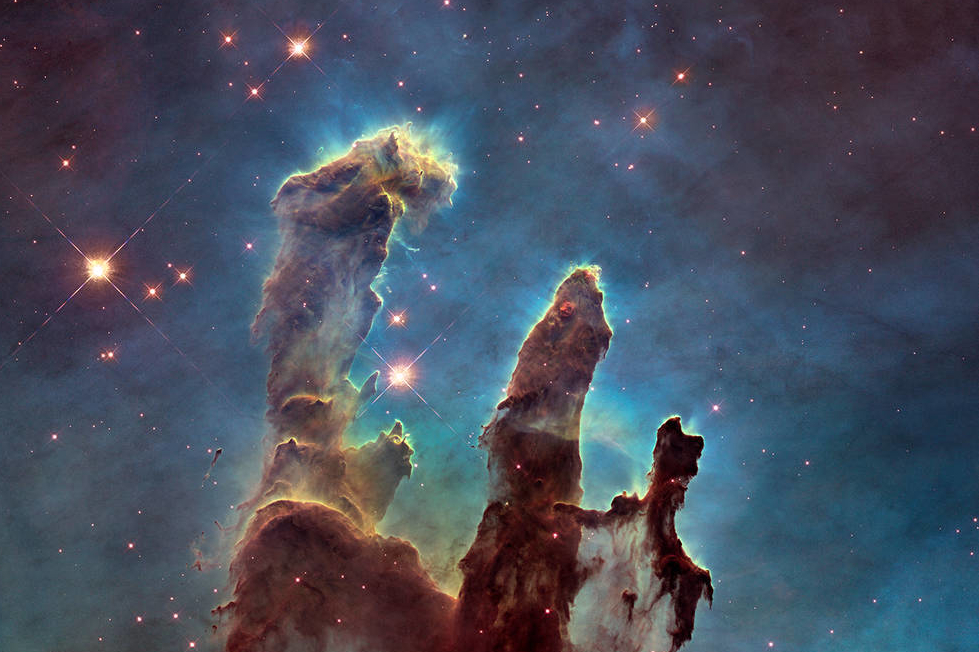מָה עִנְיַן שְׁמִטָּה אֵצֶל הַר סִינַי? – What does shemitta have to do with Mount Sinai? (Rashi ז“ל)
Suppose there is something going on in the universe which is to ordinary, everyday reality as our unconscious is to our daily lives? Softly, but unmistakably guiding it. Most of the time, we are unaware of it. Yet, every now and then, on account of some fluke, we are startled by the results of its presence. We realize we have been part of something with neither consciousness nor consent. It is so sweet and then it is gone. You say, But I don’t believe in HaShem…What makes you think it matters to HaShem? – Rabbi Lawrence Kushner, Invisible Lines of Connection
The first two verses of parashat BeHar, are:
וַיְדַבֵּ֤ר יְהֹוָה֙ אֶל־מֹשֶׁ֔ה בְּהַ֥ר סִינַ֖י לֵאמֹֽר׃ דַּבֵּ֞ר אֶל־בְּנֵ֤י יִשְׂרָאֵל֙ וְאָמַרְתָּ֣ אֲלֵהֶ֔ם כִּ֤י תָבֹ֙אוּ֙ אֶל־הָאָ֔רֶץ אֲשֶׁ֥ר אֲנִ֖י נֹתֵ֣ן לָכֶ֑ם וְשָׁבְתָ֣ה הָאָ֔רֶץ שַׁבָּ֖ת לַיהֹוָֽה׃
יהוה spoke to Moses on Mount Sinai: Speak to the Israelite people and say to them: When you enter the land that I assign to you, the land shall observe a sabbath of יהוה. ((Lev. 25.1-2)
What is this, out of nowhere, mention of Sinai? We haven’t seen a mention of the place of Revelation for many a week’s Torah reading. And, as Rashi ז“ל asks, why now, of all times?
This famous comment by the most famous of Torah commentators has become in our tradition the Jewish equivalent comment of “what does that have to do with the price of tea in China?” That is to say, as Rashi asks, what does shemitta, the topic immediately following the opening verse, have to do with Mt Sinai, mentioned in that first verse. What can one remotely have to do with the other?
This kind of encountering the Creation is rooted in the idea that everything can be sorted out. Our lives are full of categories: animal, vegetable, mineral; kosher, vegan, omnivore; thinking, feeling, sensing. Many of us are caught up in serious and anxiety-provoking questions of identity and practice. We are supposed to define ourselves as this and not that, with or against, clearly separating and delineating the categories of our lives, and where we belong among them.
But that’s actually not possible, because we exist across categories. Everything does.
Whether or not we’ve noticed it, the forty-nine day ‘Omer counting period we’re engaged in since the first day of Pesakh offers us an interesting chance to experience the reality of our interconnectedness. As we contemplate each day of the ‘Omer, we are invited to consider our existence as a myriad of different yet interconnected characteristics of being: emotions of judgement and mercy; intellectual understanding, physical endurance, and more.
The idea is simple: you are a complicated being. You are more than one thing at a time (an expert in some things and a novice at others, for example) and you must sometimes bear the burden of inner conflict as a result. The mystical practice of counting the ‘omer invites us to recognize our conflicts and consider how we can turn them into an awareness of our essential ability to connect even when we seem very distant. It does this using a chart of the various attributes of our existence, and tracing their interconnectedness, day by day. You can see one version of the chart here: Sefirot.
Today, for example, is the thirty-first day of the ‘Omer. On this day we are to contemplate the interface in our lives of the qualities (among many others) of tiferet and hod. Tiferet is variously understood to mean compassion, harmony, and beauty. Hod is translated as splendor, also prophecy (maybe because hod is so often used to describe the Divine Presence), and may be understood as a short form of the word for thankfulness, as well.
How can you apply these concepts to your life in this moment, on this day? Gratitude for beauty where it may be found? Compassion in the face of dire prophecy? So many mixes might seem relevant. And at the end of these few moments of contemplation, you might find your sense of being in this world on this day is expanded, just a bit. Add to that a deep breath, and you might be a little more ready for what Shabbat invites you into: a time out of time, where you can be reminded by our parashah that everything relates to everything else, no matter how strange that may seem to our limited vision.
